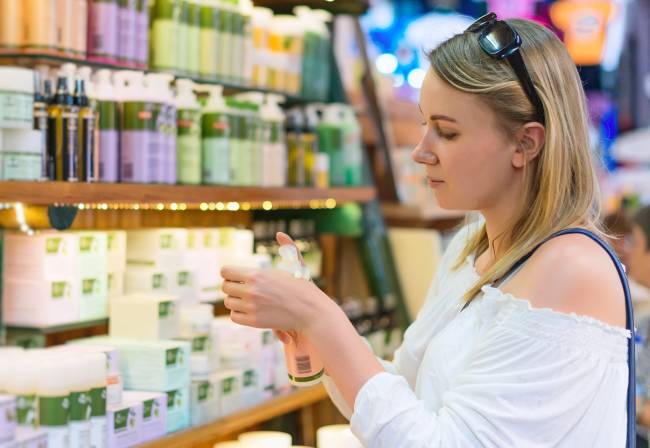Food and Health & Beauty are expected to be two of the best performing retail categories for 2024, along with ‘purpose’ driven retail offerings, which include circular retail and sustainable shopping formats, according to predictions from the KPMG/RetailNext Retail Think Tank (RTT), an independent board of retail experts.
Food retail to return to volume growth
In its latest 2024 Retail Outlook report, the RTT predicts a return to volume growth in Food retailing in 2024, after 2 years of falling volumes. RTT member, Mike Watkins, who is Head of Retailer Insight at NIQ, predicts food retail will see headline value growth of +4-5% in 2024, with volumes up around +0.5-1% next year.
Off the back of record-breaking Christmas sales, which saw Lidl and Aldi post 12% and 8% sales rises respectively earlier this week and Lidl continuing its run as the fastest growing UK supermarket, Discounter performance is set to continue into 2024 as consumers switch supermarket allegiance and opt for more own branded goods, according to the RTT.
“Most of the growth in 2024 will again come from the Discount and Value retail channels, with Aldi and Lidl having crossed the threshold of a combined 20% market share after over 20 years in the UK,” according to Watkins. Retail Consultant, Nick Bubb, added that “sales growth for the big supermarkets in 2024 is likely to be more subdued, with the boost from grocery price inflation dropping away”, as well as pointing to the ongoing pressure on consumer spending.
Retail consultant and former Globaldata Director, Maureen Hinton, suggests the “switch to own brands will continue in 2024 as consumers prioritise their needs and are more selective about where they shop and what they buy”. A recent poll showed that more than half of UK consumers (54%) planning to buy cheaper or own-brand grocery items in 2024.
Lipstick effect puckers up Health & Beauty performance for 2024
The ‘lipstick effect’ – where consumers buy small ‘everyday’ treats rather than big-ticket items in economic downturns – prompted a +5.6% uptick in Pharmacy and Health & Beauty sales last year, according to Barclaycard’s annual spending survey.
With economic prospects muted for 2024, the lipstick effect is expected to continue to boost the performance of Health & Beauty as well as Wellness retailers, as consumers “favour the small luxuries in life and focus on wellness”, James Sawley, Head of Retail & Leisure at HSBC, suggests. Co-Chair of the RTT, RetailNext’s Gary Whittemore added that “while economic growth remains slow for 2024, the outlook for retail is muted for most sectors outside Grocery and Beauty.”
Circular retail comes of age
With 46% of retailers already offering resale or preloved collections in 2023, and 82% of those offering resale or rental offerings saying it had resulted in a revenue boost, purposeful brands and those with strong sustainability heritage will enjoy good growth in 2024, albeit from a low base, Sawley also suggests. Retail consultant, Natalie Berg, expects circular retail will see even more success in the year ahead, with “the pre-loved movement continuing to gain momentum, fuelled by the desire or need for value.” She also predicts this will drive “greater demand for durability, traceability and more transparency in retailers’ circularity efforts.”
Fashion has been one of the early adopters of circular retail models, with the global apparel resale market expected to grow 127% by 2026 – three times quicker than the wider clothing industry as a whole. Original research of over 1,000 UK shoppers by True Fit revealed that now consumers make twice as many fashion purchases on pre-loved platforms (20%) than on Facebook (10%) and almost double compared to Instagram (11%).
Hitting home: a challenging 2024 ahead for Home retailers
Barclaycard data suggests Home Improvement & DIY retail spend fell -4.7% year-on-year in 2023, while Furniture stores also experienced a -5.2% downturn in takings last year, as consumers move away from big-ticket purchases.
The RTT’s 2024 Outlook report expects Home retail to continue to face a challenging 2024, with Hinton suggesting “a slow housing market, and the pandemic boom for home-related big-ticket items and technology delaying the replacement cycle” making it more competitive for home-related sectors. Meanwhile, Bubb pointed to the ongoing “hurt of big rises in interest rates” on the performance of the big DIY and “big ticket” retailers, with much depending on when the Bank of England feels able to start to lower interest rates, to relieve the pressure on “big ticket” spending, which he suggests is “unlikely to be before the second half of the year.”
Fashion sector’s ‘polarisation’ set to continue
McKinsey’s State of Fashion 2024 report forecasts that global apparel will post top-line growth of between 2-4% this year, with the luxury segment expected to generate the biggest share of economic profit. However, Sawley points out that we can expect to see the continued polarisation of retail in 2024, with the pivot towards ultra-value or ultra-luxury continuing: “The most successful retail companies in 2024 will… be pivoting towards either end of the value spectrum. The emergence of Shein and now Temu, both rapidly growing in the UK, is a reminder of just how value conscious the consumer is right now, while only the ultra-luxury players are still performing well against softer consumer demand.”
While the RTT’s outlook for fashion in 2024 is one of muted growth, Hinton adds that “as ever, success in Clothing and Footwear depends on those retailers and brands who understand and inspire their customers.”



